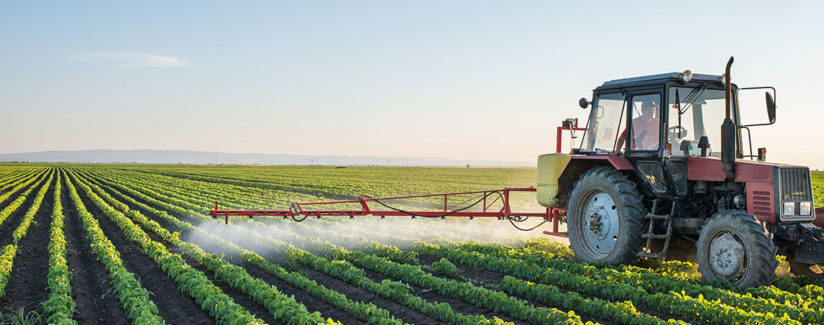GM or Genetically Modified crops are widely used around the world to aid agriculture, but not in the UK. Whilst on work experience Carl Ijeoma (Yr 11 student) from Bishop's Stortford College explored the UK's agricultural predicament and the possible benefits of implementing GM crops in the UK.

In an ever-changing global economy one thing we can, quite literally, not live without is food. The idea of farming for subsistence has been a fundamental concept for millennia, however in today’s world there are many more elements to contend with. So, a major concern for many is how we can manage this vital resource and what changes need to be made with a growing population.
GM agribusiness
The definition of GM (Genetically Modified) food items is stated by the WHO as ‘food derived from organisms whose genetic material has been modified in a way that does not occur naturally’. This consist of crops such as corn, soybeans, potatoes, and cotton, however, as technological advancements are made scientists are keen to introduce GM animals and micro-organisms into the wider global food market. The largest farmer of GM crops is the USA, as in 2019 71.5 million hectares of land was used to farm GM crops, over 35% more than the second largest farmer of GM crops at the time: Brazil.
So why are we slow to accept GM crops in the UK? Are we wary of GM crops’ long lasting health effects as some studies suggest that the crops can lead to antibiotic resistance among bacteria and even cancer. However, for the most part, the benefits outweigh the weaknesses. GM crops, although expensive to buy as seeds, require far less maintenance – agricultural economist Graham Brooks states the ‘savings have more than offset the additional cost farmers incur for buying GM seeds’.
Now in theory this should be a success, but would you want to eat GM food products? According to a survey conducted by farmers weekly in 2021 only 15% of UK farmers would be willing to eat GM crops.
The importation of our food
Due to Britain’s geographical position, we rely on importing goods and especially foods from other countries. Exotic produce like cacao, bananas and avocados cannot be grown here so they are imported. Globally we spent £1.43 trillion on importing food in 2021 according to the FAO, this is due to an increase in the quality of life globally and the desire to eat out of season food. This typically would make it cheaper for the consumer as the workers in different countries are usually paid a lower wage – unfortunately due to workers living in unsafe or inhumane conditions.
There has been a 6% increase in food prices, this is a major problem in a country where 1 in 10 people struggle to afford food. As food prices increase the UK could face a serious recession as many citizens will not be able to afford to spend so, economic activity will decrease. According to the ONS (Office for National Statistics), 92% of the British population have seen an increase in their grocery spending, with poultry increasing by over 10%, pasta increasing at 14.1% and oils and fats going up by 14.5% year by year.
This rapid increase in prices has serious consequences for the consumer as they are faced with a difficult choice, eat less, or spend more: neither option is appealing.
Global warming
The use of transport has led to an increase in CO2 emissions and therefore an increase in global temperatures as the CO2 traps air from leaving acting as a blanket of warmth. According to BBC Good Food transporting food within the UK alone produces 19 million tonnes of CO2 annually with the average UK citizen producing 10 tonnes of CO2 per year (almost double the world average).
What does this mean for the UK’s weather? The UK’s ten hottest summers have all occurred in the past 20 years. Summers are predicted to become more arid, and winters are set to become wetter and warmer. This is a problem. Now you might ask why? It sounds like it could have some positives; less energy spent on heating plants in the winter, less watering needed for plants in the winter, and in some ways this is correct. However, this will also lead to an increase in the proficiency and quantity of weeds, and in the summers, there will be a strain on the irrigation systems and a massive increase in the amount of transpiration from plants leading to them requiring even more water. To counter these problems the government would have to spend more on improving the water systems in the UK which in turn means more taxation which for the average UK citizen, in a period where there is an ever-looming threat of a recession, is a genuine concern.
In the UK, with increasing food costs and global warming I believe GM agribusiness may make a positive contribution. Although, I would be reluctant to try GM produce, it does seem like the way forward. However, by reducing our carbon footprint through eating less meat and trying to eat locally and in season we may be able to reduce our effects on the environment and alleviate the strain on farmers in Britain, leading to cheaper more affordable meals for everyone. If not, food insecurity may increase in the UK and the quality of life may worsen for us all.
Carl Ijeoma
Bishop’s Stortford College
Year 11 student
References: